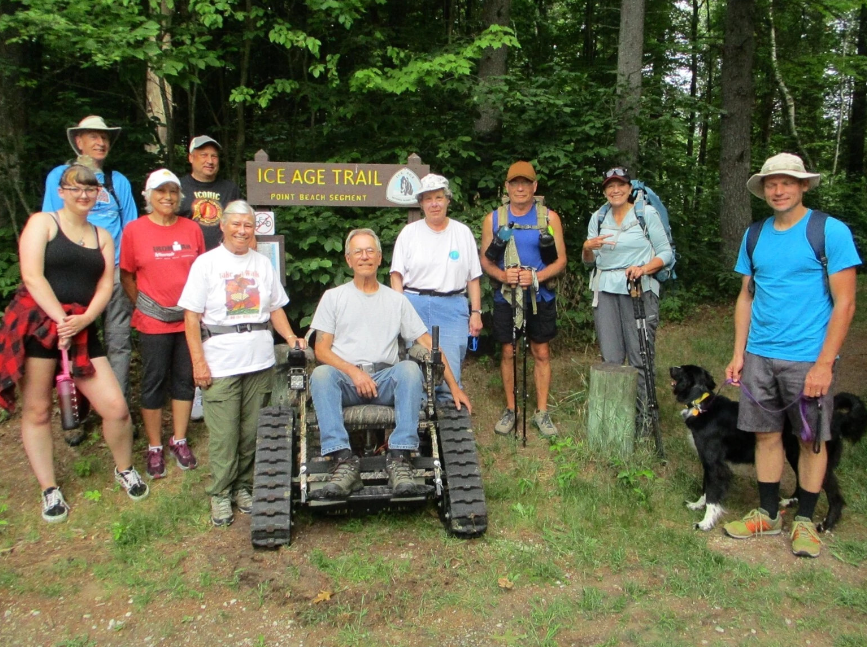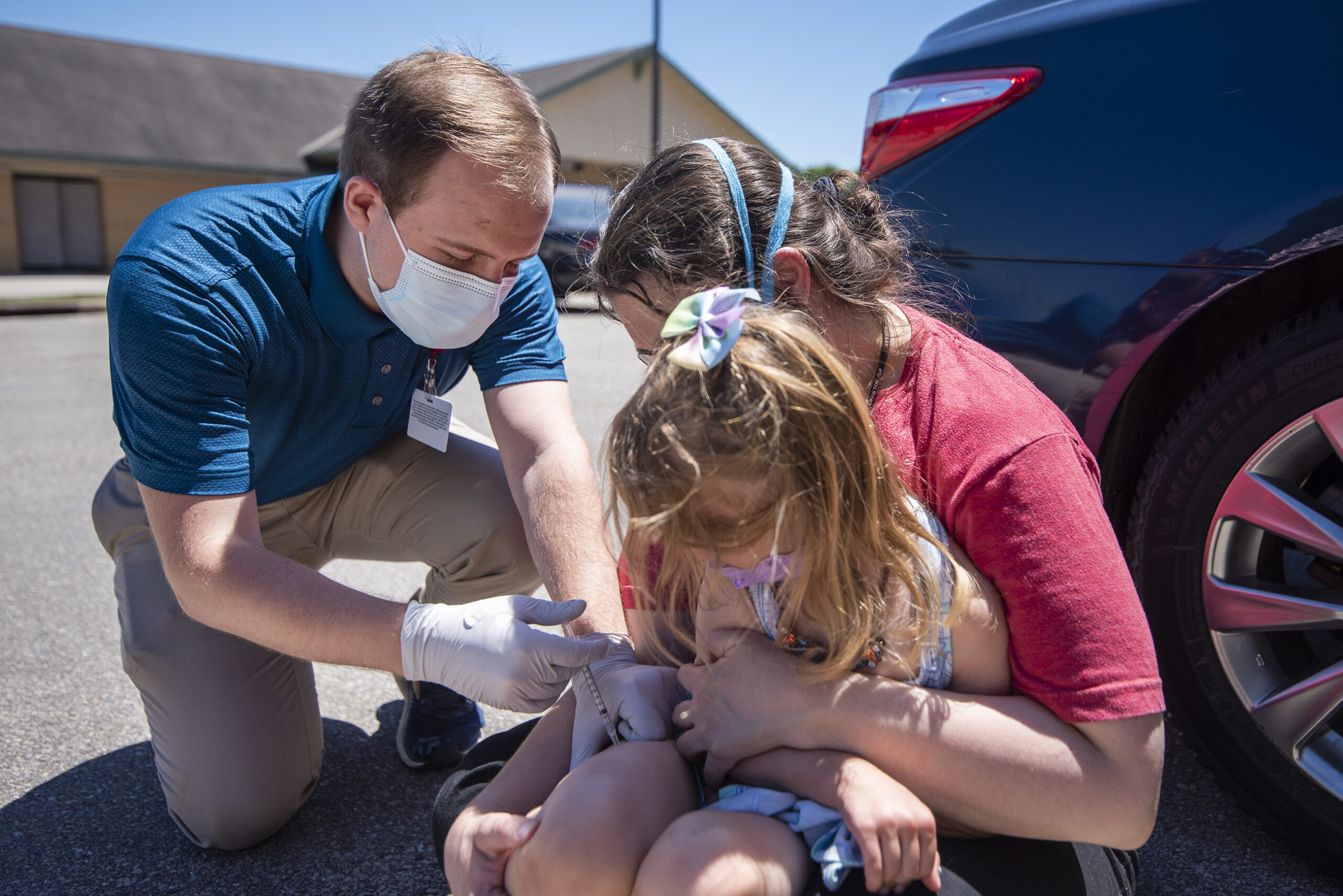Nearly 100,000 people in Wisconsin live with some kind of vision difficulty, according to census data. With the push for individuals to sign up for the COVID-19 vaccine online, advocates for the blind are raising questions about the accessibility of state websites.
Denise Jess, who’s been blind since birth and is executive director of the Wisconsin Council of the Blind and Visually Impaired, said the pandemic has revealed “tremendous assets and tremendous detriments.”
The nonprofit, based in Madison, moved to remote work at the beginning of the pandemic last year. About a third of the staff experience vision loss and help other individuals across the state who have low or no vision as well.
News with a little more humanity
WPR’s “Wisconsin Today” newsletter keeps you connected to the state you love without feeling overwhelmed. No paywall. No agenda. No corporate filter.
“We discovered very quickly which meeting platforms were accessible, which ones were less accessible and which ones were completely inaccessible and had to advocate to have meetings held on accessible platforms,” Jess said.
Jim Denham, an access technology specialist who works with the council, has no usable vision. He said everyday life has its problems: “Going out and about, it’s the awareness of, OK, who’s wearing a mask, who’s not wearing a mask. Trying to stay away from people and keep the 6-foot distance without knowing where people are at sometimes can be a little bit challenging.”
Denham teaches classes on assistive technology through the Wisconsin Council of the Blind and Visually Impaired. He uses screen reading software, which can read information displayed on a computer screen out loud.
“Visually, when you look at a webpage,” he said, “you’re drawn to the center of the page, the main points of the page. With a screen reader, you’re reading it just one line at a time. It’s important to have commands to skip the information you don’t need, so you’re not reading the entire web page.”
Even with screen reading software, not all websites are accessible. When trying to book his COVID-19 vaccination online, Denham said he ran into barriers with his screen reader.
When using the state Department of Health Service’s Wisconsin Vaccine Registry to sign up, Denham was prompted to fill out a CAPTCHA box — a test to determine whether someone is a human or robot.
“There was an audio CAPTCHA that did not work well and was really difficult to use and there were no instructions,” Denham, who is now fully vaccinated, said. “We are working very closely with DHS to make the website more usable and friendly for those blind and visually impaired.”
Jess, executive director of the council, tried securing a vaccine appointment through websites like Walgreens, HomeTown Pharmacy and DHS to sign up for the COVID-19 vaccine.
But Jess said Wisconsin state websites don’t comply with the Americans with Disabilities Act. Under Title II of the Act, programs, services and activities of state and local governments must be accessible to people with disabilities.
Jess said that while magnification software and screen readers worked pretty well on these websites, scheduling the actual appointment was like “guess work.”
“When you get to the actual scheduling piece where you’re going to select your appointment time, that isn’t coded correctly so that I can navigate it using keyboard commands. It’s very mouse dependent,” she explained.
To schedule her vaccine, she chose to talk with an organization on the phone.
Wisconsin isn’t the only state facing accessibility issues with its websites. In January, nonprofit web accessibility organization WebAIM and Kaiser Health News looked at COVID-19 vaccine websites across all 50 states. It found accessibility barriers on almost all 94 state websites that offer registration forms and general vaccine information.
Wisconsin Public Radio, © Copyright 2025, Board of Regents of the University of Wisconsin System and Wisconsin Educational Communications Board.





